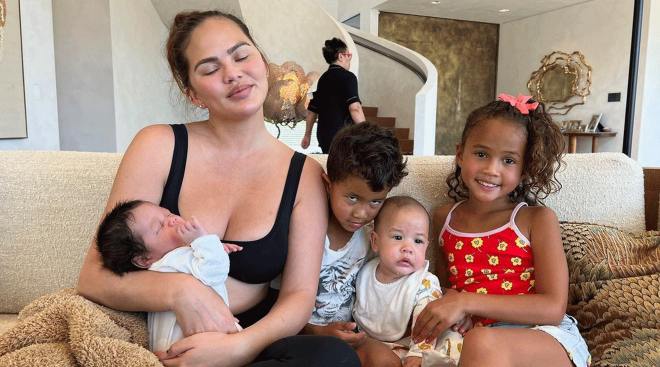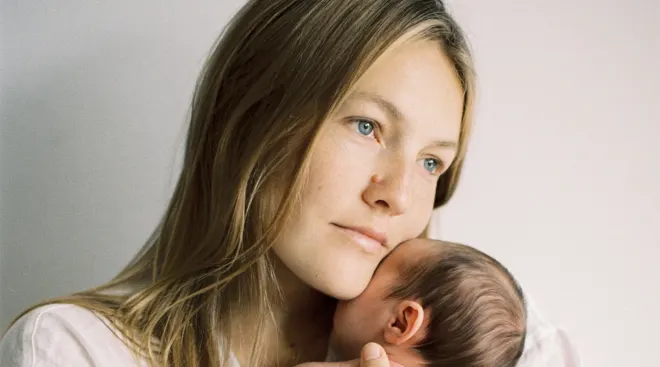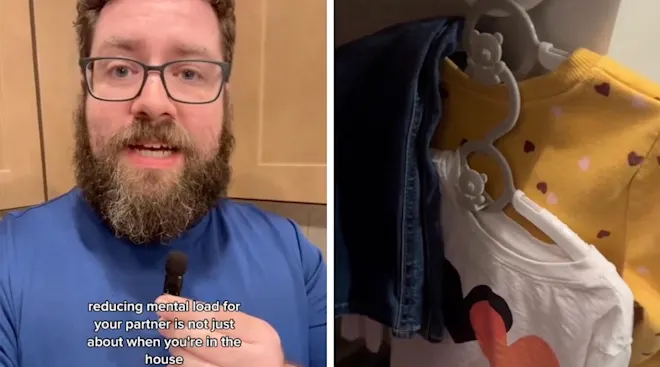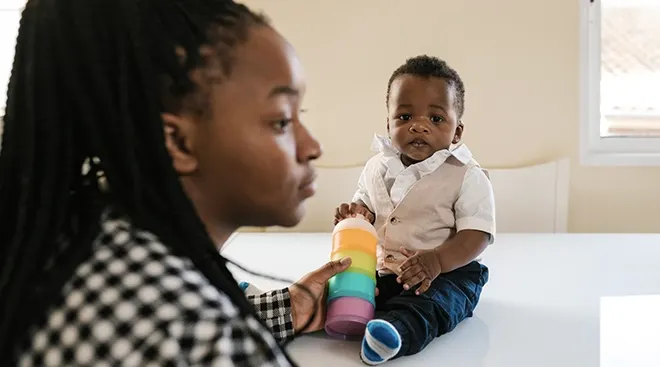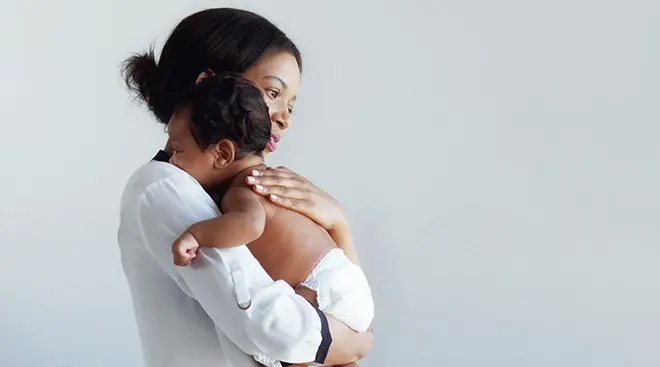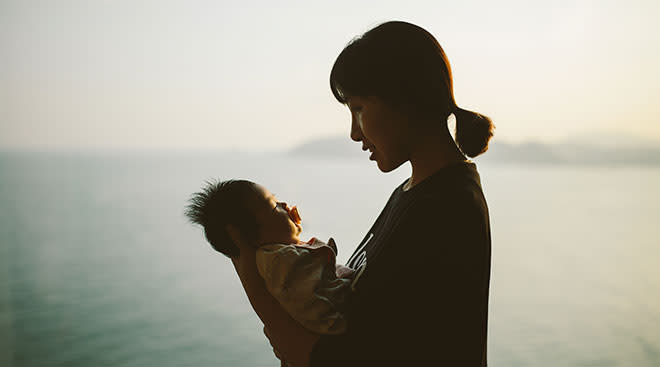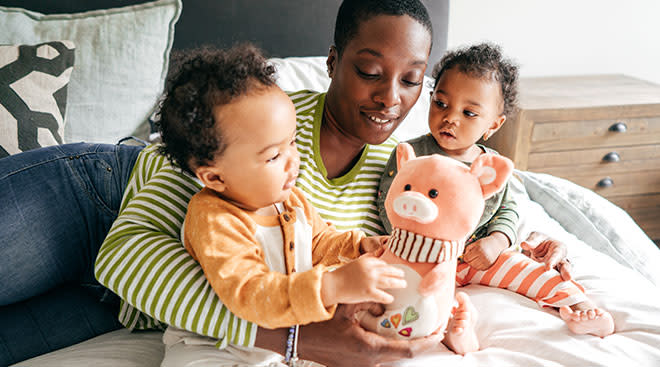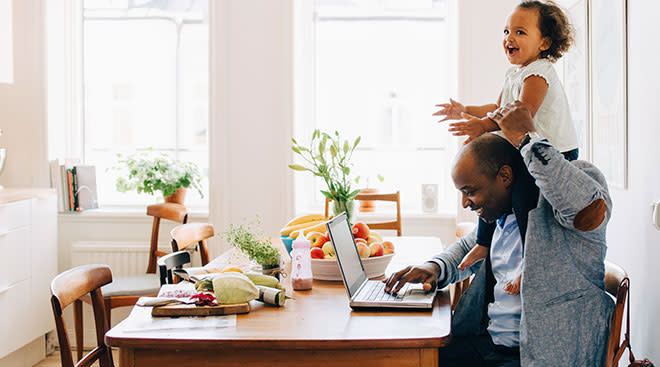What No One Tells You About After the Positive Pregnancy Test
Maternal mental health and postpartum depression may be typically taboo terms, but it’s time we change the narrative. And it has to start before motherhood begins.
Worldwide, as many as one in five women experience some type of perinatal mood and anxiety disorders (PMADs), but 70 percent of women hide or downplay what they’re really feeling, according to wmmhday.postpartum.net. PMAD is an umbrella term which includes postpartum depression, postpartum anxiety, postpartum obsessive compulsive disorder, postpartum bipolar and postpartum psychosis.
Which is why World Maternal Mental Health Day, May 1, is a movement we can all get behind. The campaign first began in 2015 to raise awareness on maternal mental health issues so more women get treatment and fewer silently suffer. The date was chosen because of its closeness to Mother’s Day holidays celebrated around the globe.
More often than not, women aren’t adequately educated on the topic, and are left feeling alone and helpless. The good news is there are many resources available for moms in need. The Motherhood Center of New York is one in particular. It provides supportive services for new and expecting moms, including a range of treatment options for women experiencing PMADs. It offers something to every woman making the transition to parenthood and looking for a support group, therapy or even a day program for moderate to severe PMADs.
The center’s co-founder, Catherine Birndorf, MD just teamed up with Alexandra Sacks, MD for the book What No One Tells You: A Guide to Your Emotions from Pregnancy to Motherhood. It touches on a topic often missing in most parenting books: the overwhelming emotions of Mom. You’ll be bombarded with recommendations for the latest and greatest strollers and receive more baby name suggestions than you need, but there are few warnings from friends about scary anatomy scans, invasive in-laws, breastfeeding challenges and postpartum feelings.
That’s where What No One Tells You comes in. It answers all the questions new moms are afraid to ask. Below is an excerpt from one of the book’s chapters, “Finding Out You’re Pregnant.”
Maybe you got pregnant from a one-night stand and never saw yourself as a single mother, but now you’re considering having the baby. Maybe you’re married but had planned to delay pregnancy until later in your career. Maybe your wedding is in six months and you’ve already paid for your form-fitting dress. Maybe you are the mother of two and thought you were too old to have a third. Maybe you’ve struggled through so many years of infertility that you’re already in deep into planning another pregnancy with a surrogate (yes, this is a true story). The one thing we’ve seen time and time again is that your initial reaction is not a prediction of your future experience as a mother.
Even with a planned pregnancy, the first emotion many women feel is panic. Panic and excitement are often intertwined—they both make your heart race, and sometimes it takes a while to figure out if the sensation is pleasurable or upsetting, but pure panic is an understandable reaction to the simple, sober truth: Everything is about to change. Panic is connected to our body’s fight-or-flight response to immediate danger. The physical reaction of your heart pounding is part of an evolutionary strategy, a surge of stress hormones left over from when our ancestors needed energy to run away from predators hunting them on the savanna. It’s human to panic when you find out you’re pregnant, because the physical structure of your body and the emotional integrity of your psyche are about to undergo a profound overhaul. Even if you welcome the change, your life as you know it—at least in terms of time management and, for many, social and financial life—is “in danger.”
It helps to remember that there’s never a perfect time to have a baby, and no one is ever fully ready (even if she thinks she is). Having a child means taking a leap of faith—in your own body and abilities and, if you’re partnered, in your relationship. Panicking because you’re not sure you can do it, or because a part of you doesn’t want to, is common—and, in our experience, unrelated to how you will eventually feel as a mother.
The full copy of What No One Tells You is available here.
Please note: The Bump and the materials and information it contains are not intended to, and do not constitute, medical or other health advice or diagnosis and should not be used as such. You should always consult with a qualified physician or health professional about your specific circumstances.
Navigate forward to interact with the calendar and select a date. Press the question mark key to get the keyboard shortcuts for changing dates.


































